Featured Clinician: Will Faudree
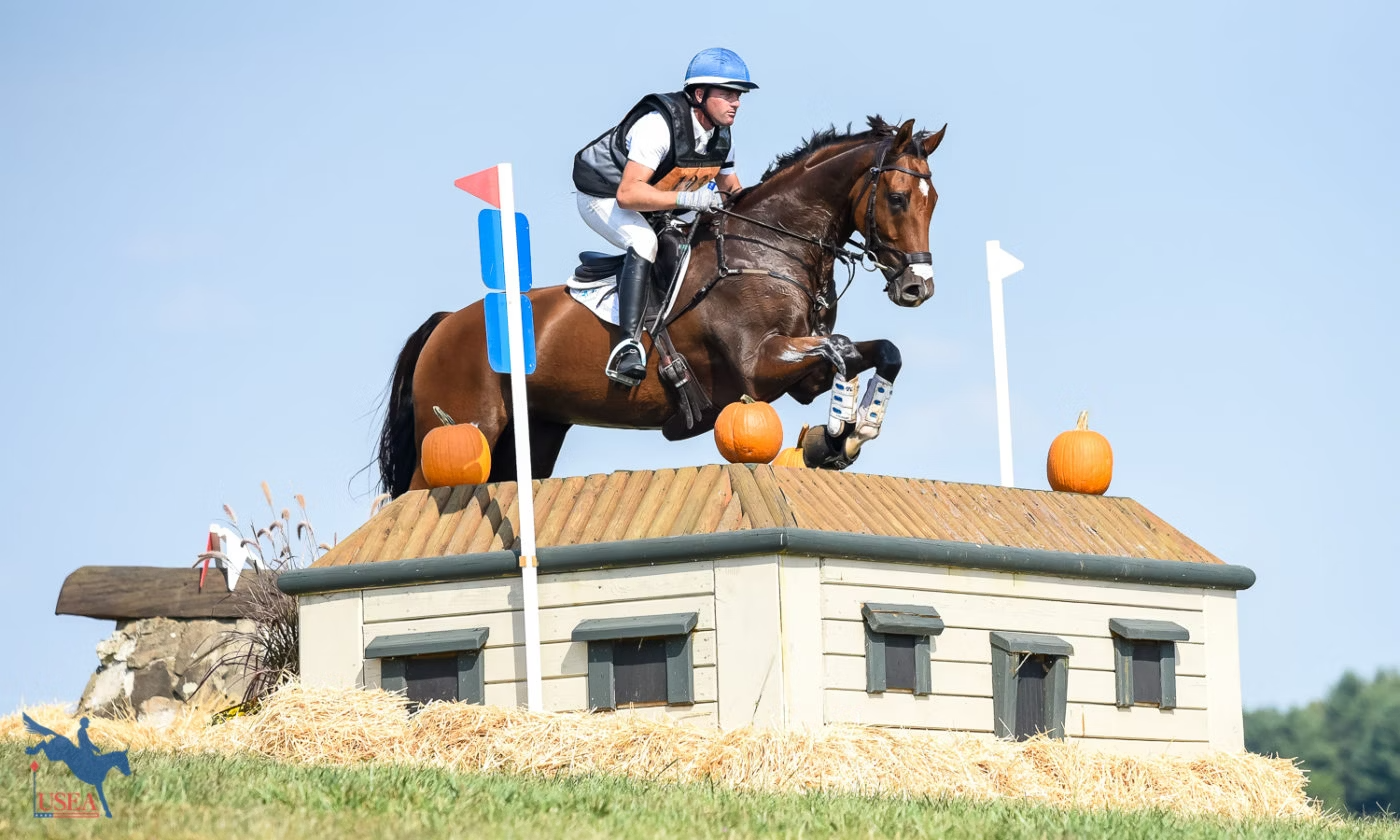
USEA/Jessica Duffy Photo
The Featured Clinician article series is provided through a partnership between STRIDER™ and the USEA.
This article is by Natasha Sprengers-Levine from STRIDER™, and was originally posted as a part of the USEA's Featured Clinician article series.
“Keep going,” says five-star eventer Will Faudree.
A stalwart member of the U.S. Eventing squad since he was named USEA Young Rider of the Year in 2002, Faudree’s impressive resume has provided him the experiences to become a successful rider, trainer, and coach.
In 2003, he was a member of the gold medal-winning team at the Pan American Games and received the Lionel Guerrand-Hermes Trophy for exemplifying the U.S. Equestrian Team’s ideals of sportsmanship and horsemanship. A traveling reserve for the 2004 Olympic team, Faudree rode on the 2006 FEI World Equestrian Games (WEG) team in Aachen, Germany. He later went on to be short-listed for the 2010 WEG and 2012 Olympic teams.
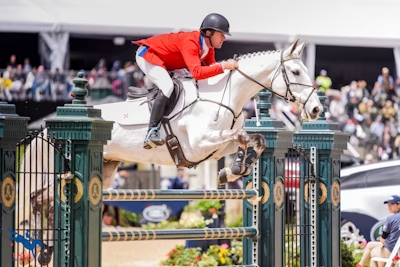
USEA/Leslie Mintz Photo
Despite setbacks such as a neck-breaking fall in 2015, Faudree’s program continues to produce consistent results at the top level of the sport. The 2019 highlights for team Will Faudree Eventing include a top-five finish in the CCI4-L at Millstreet (IRL) with Pfun, a win in the CCI2-L at the Virginia Horse Trials, and a top-10 finish at Fair Hill International in the CCI3*-L with Mama’s Magic Way. Faudree was the Area V Young Rider Coach; his mindfully developed program and horses-first approach to training and teaching make him a popular clinician, too.
“Keep going. I take that advice every day. It’s amazing what you can teach a horse if you just keep at it and keep going. You’re never going to master this, nobody is. You can become really good if you just keep going. You get better every day.”
STRIDER caught up with Faudree at his home base - Gavilan Farm in Hoffman, North Carolina - as many states began to ease COVID-19 restrictions and national competitions started to ramp up. An outspoken advocate for widespread cooperation to help flatten the curve, Faudree has made the most of his downtime from competitive eventing.
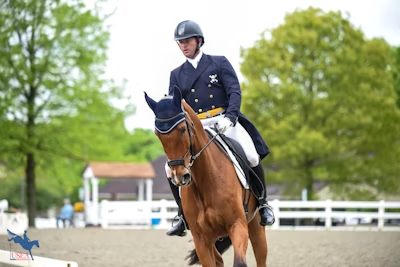
USEA/Jessica Duffy Photo
“I miss competing as much as everyone else does, but this is bigger than a bunch of spoiled little kids playing with ponies every day. We are so lucky to do what we do.”
“I love training my horses, I love the process. I have really been enjoying that. I’ve learned a lot from this time, and I’ve been really focused on being better. There are silver linings of everything. I’m using the opportunity to travel locally to some different friends’ farms and ride in different settings.”
Faudree’s base is just minutes outside of Southern Pines, North Carolina – convenient for both training and teaching. He recently taught show jumping and dressage for Southern Pines’ local hunt’s summer camp.
“I had so much fun teaching this one group of kids. There was this little boy, he was probably 10, riding his pony around. I had a small course set-up and off he goes galloping to the jump picking his nose as I’m reminding him to keep both hands on the reins. Afterward, I talked him through what I might do in the corners, how I would keep both hands on the reins, etc. and he said, ‘You make this more complicated than it is.’ That’s the wisdom of youth.”

USEA/Jessica Duffy Photo
A USEA ICP Level IV certified instructor, Faudree spends much of his time traveling to teach clinics for riders of all levels.
“I love to train, I love the training process, and I love to teach.”
“When I teach clinics, I very much individualize each person. Yes, I have a set of exercises set up, but I cater to individual horse and rider combination’s needs."
The exercises riders can expect to encounter in one of Faudree’s clinics will vary based on level, the tools available, and the current focus of his own program. His teaching style builds up from the basics and focuses on the positive partnership between horse and rider.
“I teach a classic way of riding; we don’t start lateral work in eventing until the Preliminary level because a horse must go straight first. I go from a very basic way of teaching.”
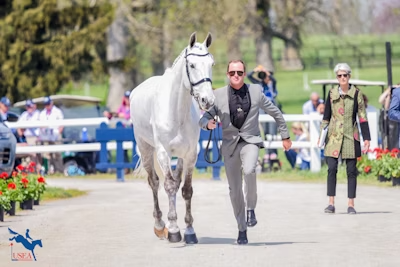
USEA/Leslie Mintz Photo
“The demographic I really enjoy teaching in a clinic setting is the hungry amateur rider who is well-mounted. That’s not to say they had to get on a plane and buy a horse overseas, but I love teaching people who come to me with a well-matched horse: the perfect horse for them. Will it jump around Kentucky? Probably not, but is it the perfect horse for the rider and her ambitions? Yes.”
Faudree admits, “I don’t like teaching someone who is on the wrong horse for them. This sport is too dangerous and too risky. I am not shy about telling people not to ride a bad jumper, there are plenty of horses out there.”
“For clinics, I tend to put together exercises with multiple ways to answer the questions if we get into trouble. I am very confident in what I do, and if I run into a problem, I know what to do to get out of it.”
Laughing, Faudree adds, “I was born with the gift of gab, I can talk my way out of everything.”
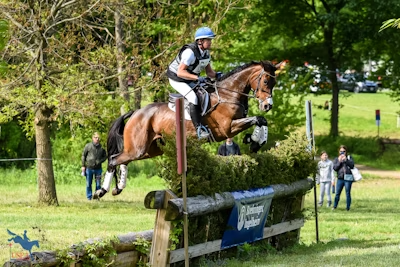
USEA/Jessica Duffy Photo
“I always say; you can go to as many clinics as you like, but listen to the people who you respect and whose way of riding you admire. How are they riding today? And if they’re not riding today, how do their students go?”
“I am confident in my teaching, confident in what I do. People can like it or not- that won’t hurt my feelings. If you look at my string of horses – for example, Pfun and Mama’s Magic Way – they are very different horses but go very similarly. There are so many ways to train a horse. My way is different from others. Boyd [Martin]’s horses are different but go a similar way, same with [Lauren] Kieffer’s.”
Raised on a cattle ranch in West Texas, Faudree grew up ranch riding, roping, and cattle driving before he fell in love with the sport of eventing and ultimately moved to Pennsylvania to work for Phillip Dutton. Faudree’s training philosophy is based upon a great deal of respect for the horses and has been shaped by his encounters and experiences over the years.
“I’ve always done things in my own way. Being in an English saddle when everyone was in a western saddle was pretty cool,” Faudree tells STRIDER™.
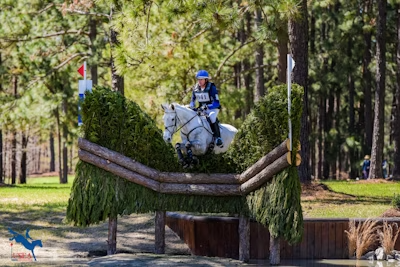
USEA/Leslie Mintz Photo
“I meet every horse I come into contact with as an individual.”
“My background gave me a respect for the horses - they’re not a tool. I have immense respect for horsemen, too. Our top ranch hand was Leroy Web, I would watch him as a kid, and he could do anything with the horses . . . I so clearly remember this day, I was probably seven, and I remember standing in the house looking out the window when I was supposed to be asleep - it was dark, but there was a streetlight near the roping arena and I could see him on a grey horse doing a figure eight with the most perfect flying changes and canter-walk-canter transitions.”
Faudree continues to surround himself with coaches, friends, and teammates whose ideals align with much of what he learned at such a young age. His notable mentors include Bobby Costello, Phillip Dutton, Laura Kraut, Kim Severson, Amy Tryon, and Karen and David O’ Connor. “All of these people hit a different part of my persona in sense, and I have learned something from all of them. I’ve made my own path through all of their advice.”
“I gravitate towards instructors and influences who go by that principle – who meet every horse as an individual. As I became a professional, I’ve surrounded myself with people who run their businesses in a way I respect.”

USEA/Leslie Mintz Photo
As far as his own business, Faudree says, “It takes a village.”
“It’s so important to compartmentalize, to know which hat I am wearing. My job is to train horses and produce results at competitions.”
“I am very much a partnership rider. I spend a lot of time with my horses because that’s part of my job - that partnership. To develop that partnership and produce results. When I go away for a clinic my job is to teach that clinic.”
“I have a program I am very proud of. I don’t worry about my horses’ vet work because I am not a vet, I have a team of vets who work with my horses - I tell them what I feel and they ask me questions. I’m not an equine nutritionist, we have one that my barn manager works with. I have great people who work with me - Nat has been with me since 2009 and Christina since 2011 and we all have our jobs. We have a great time in my barn, we get along great. Everyone knows their job – there’s no confusion, there is constant communication, and we know the horses. That’s really important.”
Learn more about Will’s team and program, and connect on Instagram @willfaudreeeventing. You can find upcoming opportunities to #LearnFromTheBest in a clinic with Will through STRIDER™.
From enabling riders to discover and book the perfect opportunity, to helping equestrians across the industry grow and run their businesses, STRIDER™ fosters connection to top tier experiences.
Their mission is to build capacity throughout the equestrian community by providing digital tools and resources for riders, organizers, and equestrian business owners.
